| |
|
|
|
|
|
|
|
|
|
|
|
| |
| |
 |
|
| |
田润德
编译
文/图 2020-03-28 18:36 |
|
| |
|
|
|
|
| |
 |
|
|
|
| |
穆杰斯特·穆索尔斯基(Modest Mussorgsky,1839——1881) |
|
|
|
| |
|
|
|
|
| |
乔治·本杰明指挥英国青年交响乐团NYO-Great
Britain,演奏穆索尔斯基-荒山之夜(里姆斯基·科萨科夫改编)(英国广播公司逍遥音乐会) |
|
|
|
| |
|
|
|
|
| |
BBC Proms – Modest Mussorgsky-
A Night on the Bare Mountain (orch. Rimsky-Korsak)
|
|
|
|
| |
|
|
|
|
| |
音乐历史上的今天
1881年3月28日,穆索尔斯基逝于圣彼得堡。
穆捷斯特·穆索尔斯基(Modest Mussorgsky ,1839—1881),俄国作曲家,1839年3月21日生于托罗别茨县卡列沃村。
穆索尔斯基称得上是一位音乐的奇才,他听一遍瓦格纳的歌剧就能把它记住并能在钢琴上弹出整整一场戏。他的著名作品始终在音乐会舞台上盛演不衰。可是作曲家也有不为常人理解的方面。莫索尔斯基喜欢发牢骚,一些稀奇古怪、佶屈聱牙和令人生厌的牢骚常常被人当作神经不正常,人们常称他是疯僧式的作曲家、悲观主义者,斯塔索夫同情地说“他缺少心眼”,有些对他有成见的人则骂他是“白痴”。但任凭你怎样讽刺.批评或攻击,他都若无其事。他总是习惯于往玛鲁·雅罗斯拉维茨酒馆跑,和那里的酒友一起粗鲁地发牢骚。借以保持心理上的平衡。要不然.沙皇的专制统治,在作曲家心中产生的憎恨与厌恶又能在什么地方得到渲泄呢!
1881年他得了严重的疾病,经医生治疗情况有所好转,但医院禁止病人喝酒,对惯于用酒的莫索尔斯基更是严加防范。三月二十八日难得高兴的莫索尔斯基用一笔数目惊人的款子买通看守人,一口气倒干朋友带给他的两瓶酒,不料酒性发作、全身瘫痪,莫索尔斯基大叫两声就悲惨地死去。
但是人们永远纪念着这位伟大的“疯僧”音乐家。
今日视频:乔治·本杰明指挥英国青年交响乐团(NYO-Great
Britain),演奏穆索尔斯基《荒山之夜》(里姆斯基·科萨科夫修订配器版)(英国广播公司逍遥音乐会)。 |
|
|
|
| |
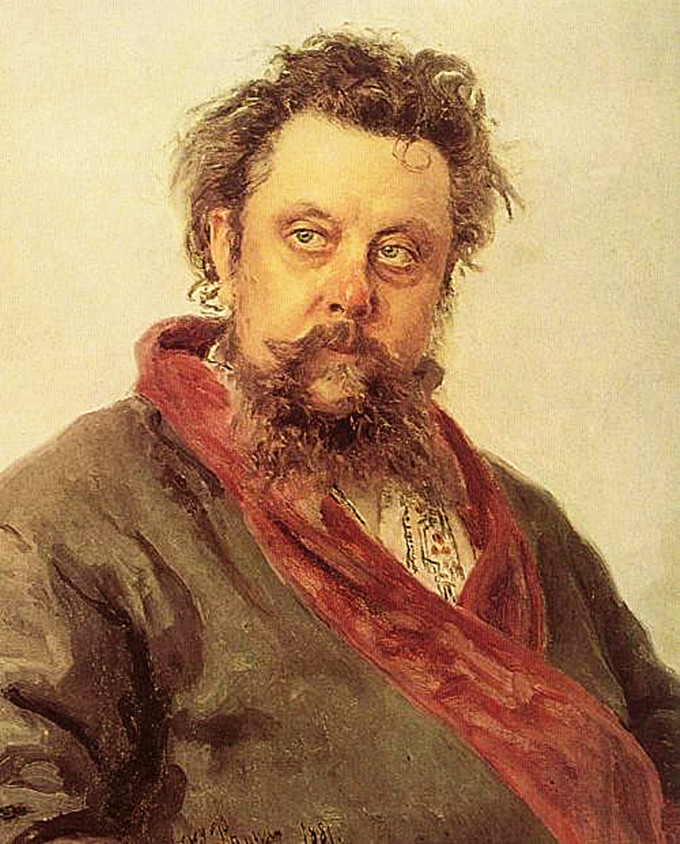 |
|
| |
穆杰斯特·穆索尔斯基(Modest Mussorgsky,1839——1881)——列宾的油画作品。 |
|
|
|
| |
|
|
|
|
| |
Today in the
history of music
On March 26, 1827, the afternoon of March 26, 1827, the thunder
billowed, the way lightning cut the vast sky!Beethoven, asleep, closed
his eyes forever.
Ludwig van Beethoven, Ludwig van Beethoven, on December 16, 1770-1827)
on March 26, the German musician, he st, home is poor, four years old,
his father make its acquisition harp, ten one year old, the mother to
the Netherlands, a travel concert, famous for their good to play the
piano, 17 years old, go to Vienna, learn in Mozart's door, found in
mother mourning back to Germany, Bonn professor music in their hometown,
one is devoted to the literature, in 1792, and then to Vienna, Haydn
taught that art increasingly diligence, reputation also is endemic one,
30 years later, ears deaf,But the style was turned into a noble,
bitterness pathetique, no one's heart did not reveal, the most
ZhuMingZhe works, a piano, "moonlight" sequence le "families made Mr Ray
that" (Coriolanus), opera (Fidvlio) fly to slightly, god plays the Mount
of Olives, the Mount of Olives, etc., and its biggest success in a
symphony, a "hero" "rural" destiny "and so on nine, its complex ensemble
thousands people, are hugely impact on later music.-- see "the republic
of China"
He was short and stout, with the bones of a sportsman.A broad earthy
face, late in life his skin became sickly and yellow, especially in
winter, when he was confined indoors, far from the fields.His forehead
was prominent and broad.Black hair, unusually thick, as if the comb had
never been upon it, and turned upside down everywhere, as if the eyes of
"the tangled serpent on the head of medusa" were burning with a strange
power that made all who saw him tremble;But most people can't tell the
subtle difference.It was always supposed to be black, for in the brown,
mournful face these eyes shone a wild light;It's actually gray and
blue.(according to the painter clebel.He painted Beethoven in 1818.They
are usually small and deep-set, and only when they are excited or angry
do they open up and spin around in their eyes is it a wonderful
reflection of their true thoughts.(as Dr. Miller noted in 1820, his
expressive eyes were sometimes tender, sometimes lost, sometimes fierce
and frightening.)He tends to gaze up at the sky with melancholy eyes.The
wide nose, short and square, was the face of a lion.A delicate mouth,
but the lower lip is often more prominent than the upper lip.The gums
were so strong that they seemed to crack walnuts.There was a deep recess
in the left chin that made his face oddly asymmetrical.According to
Moscheles (lgnaz 1794-1870 British pianist)."His smile is very
beautiful," said he, "and in his conversation there is always an air of
loveliness and cheerfulness.But his smile, on the other hand, was
unpleasant, wild, and ugly, and very short."It was the smile of a man
unaccustomed to joy.His usual expression was somber, revealing "an
incurable sadness".1825 Rellstab (ludwig1799-1860 German poet).He said
it took all his strength to stop the tears when he saw "his gentle eyes
and their intense pain."A year later, Braun von brauntal met him in a
tavern, sitting in the corner smoking a long pipe and keeping his eyes
closed, a habit that had grown with each passing day.A friend spoke to
him.He smiled sadly, and pulled out of his pocket a little talk
book;Then, in the shrill voice of deaf people, he taught them to write
down what was to be said.His face changed from time to time, when he was
accidentally caught on the piano, when he felt a sudden impulse,
sometimes even in the street, to the surprise of passers-by."The muscles
of the face swell suddenly, the blood vessels swell;The wild eyes were
doubly fearful;The mouth trembles;It was as if a magician had called in
a demon and been overpowered by it.(clebel says that is the face of my
phase.The above details are taken from the records of Beethoven's
friends and travelers who saw him.According to me is the third century
Scottish troubadour.Julius Benedict said he was like "king Lear".(a
character in a famous play by Shakespeare).Beethoven by romain rolland
(translated by fu lei)
Today's video: zheng jinghe plays Beethoven violin concerto by tenstedt. |
|
|
|
| |
|
|
|
|
| |
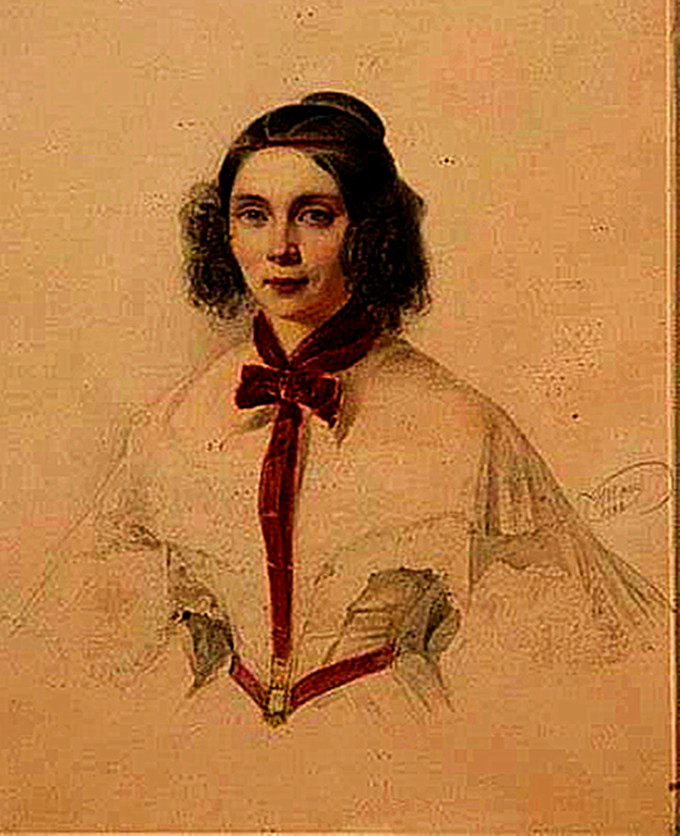 |
|
|
|
| |
The Life and Artistry of Maria Olenina-d'Alheim |
|
|
|
| |
亚历山大·图马诺夫(Alexander
Tumanov)这部传记《玛利亚·奥列宁娜的生活和艺术》介绍了歌唱家玛利亚·奥列宁娜如果在欧洲大力推崇穆索尔斯基的音乐作品。 |
|
|
|
| |
亚历山大·图马诺夫(Alexander
Tumanov)将“一位具有反叛精神、才华横溢、不屈不挠的艺术家的形象带到了我们的生活中,他的名声和对俄罗斯音乐的贡献……只有她日益增长的执著和她政治观点中堂吉诃德式的本质才能与之匹敌。”——普林斯顿大学卡里尔·爱默生教授她本身就是一位伟大的艺术家,被她那个时代最好的音乐家所认可。”——索邦大学教授埃菲姆·埃金德,俄罗斯抒情歌谣的第一人,20世纪早期欧洲古典音乐表演的关键人物。玛利亚有能力“唱出这首歌”,把歌词和音乐结合在一起,成为一门声乐朗诵艺术。玛利亚的歌唱灵感来自于她与“为数不多”的俄罗斯作曲家——穆索尔斯基、鲍罗丁、里姆斯基-柯萨科夫和巴拉基列夫——的个人联系。她是第一个把穆索尔斯基的音乐带到西欧的人。1908年,玛丽亚和她的丈夫、音乐评论家和作家皮埃尔·达尔海姆(Pierre
d’alheim)创立了“歌曲之家”(the House of
Song)。通过她的表演、他的讲座、他们的出版活动以及举办国际比赛,《歌曲之家》影响了欧洲的音乐氛围。亚历山大·图马诺夫通过她自己和她的同代人巴拉基列夫、科尔托、贝莉和拉威尔的作品,在欧洲重现了这一激动人心的古典音乐时新时代。 |
|
|
|
| |
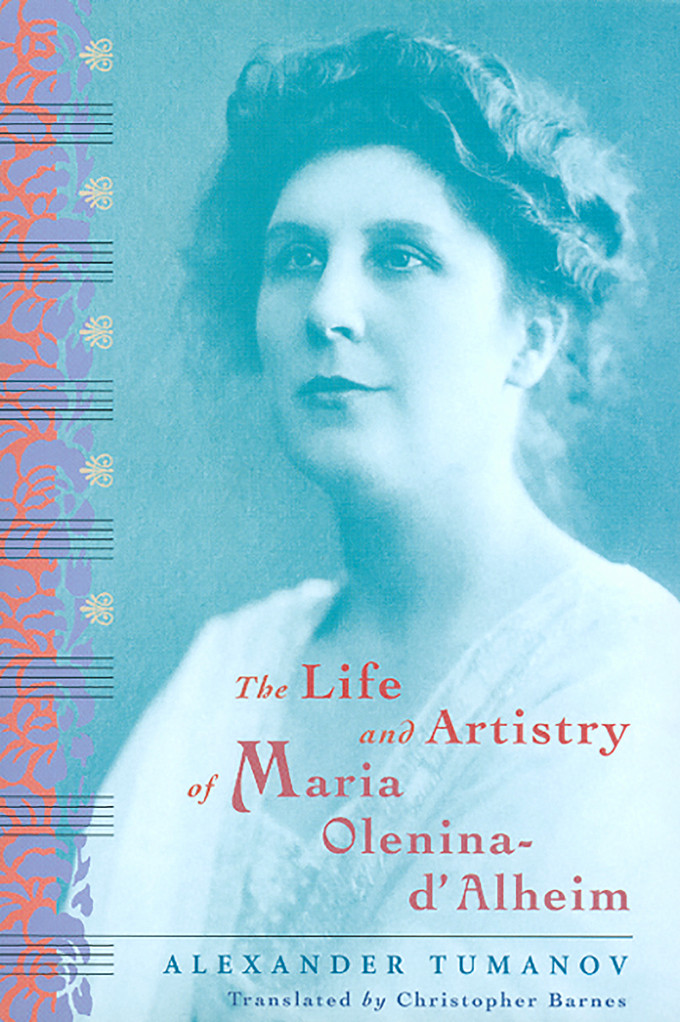 |
|
|
|
| |
Alexander Tumanov has brought "to life the
picture of a rebellious talented artist of unbending principle,
whose renown and service to Russian music...are
rivalled only by her growing obstinacy [and] the quixotic nature
of her political views." -
Professor Caryl Emerson, Princeton University " A performer who
sacrificed her own creative life in order that the world should
hear of the composer Mussorgsky. A
great artist in her own right recognized by the best musicians
of her age." -
Professor Efim Etkind, Sorbonne University Maria d'Olenina
d'Alheim, the first performer of Russian Lieder, was a pivotal
figure in early 20th century European classical music
performance. Maria
had the ability to "tell the song," uniting words and music in
an art of vocal declamation. Her
personal ties to the "Mighty Handful" of Russian
composers--Mussorgsky, Borodin, Cui, Rimsky-Korsakov, and
Balakirev--inspired Maria's singing. Her
performances of Mussorgsky were the first to bring his music to
western Europe. In
1908, Maria and her husband, music critic and writer Pierre
d'Alheim, established the House of Song (Dom pesni in Russia, La
Maison de Lied in France). Through
her performances, his lectures, their publishing activities and
by hosting international competitions, the House of Song
influenced the musical climate of Europe. Through
her own words and those of her contemporaries, Balakirev, Cui,
Cortot, Bely, and Ravel, Alexander Tumanov has recreated this
exciting period of classical music in Europe. |
|
|
|
| |
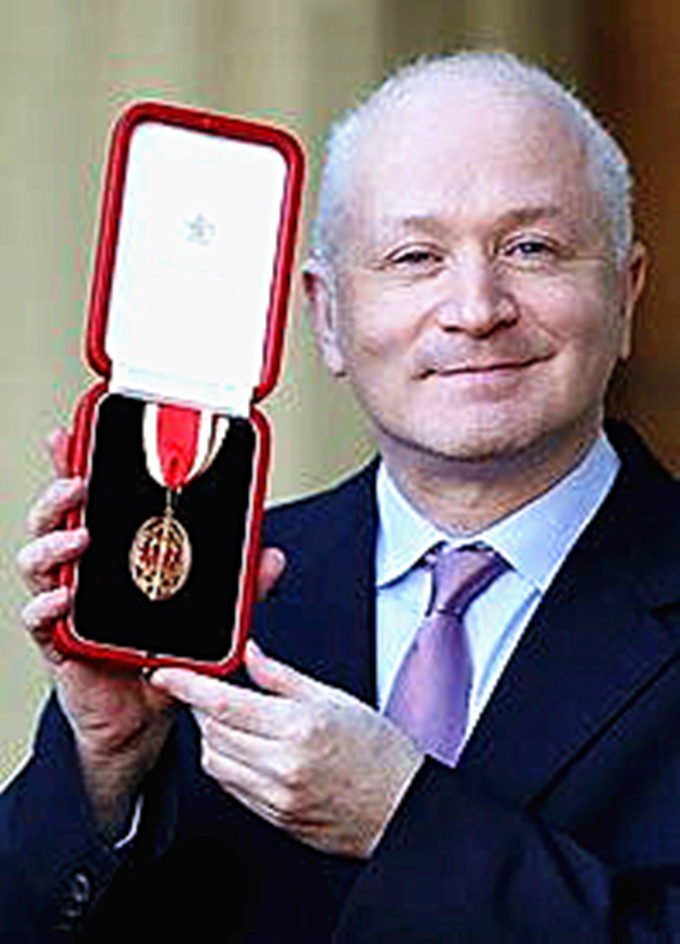 |
|
|
|
| |
乔治·本杰明(George Benjamin) |
|
|
|
| |
乔治·本杰明于2001年1月接替哈里森·伯威斯尔爵士成为国王学院的亨利·珀塞尔作曲教授,从那时起他开始接受来自欧洲和世界各地的研究生。
出生于1960年的乔治·本杰明在7岁时开始弹钢琴,并几乎立即开始作曲。1976年,他进入巴黎音乐学院,与Olivier
Messiaen(作曲)和Yvonne Loriod(钢琴)合作,之后他在Alexander
Goehr的指导下完成了在剑桥国王学院的学习。
1980年,他的第一首管弦乐作品《平坦的地平线》在英国广播公司的毕业舞会上演出后,他的作品继续在国际上广泛演出。近年来,他在伦敦南岸的威格莫尔音乐厅、巴比肯艺术中心以及纽约、阿姆斯特丹、都灵、法兰克福、柏林和汉堡等地举办了作品回顾展。
他的作品由Faber Music出版,并被记录在Nimbus唱片上。 |
|
|
|
| |
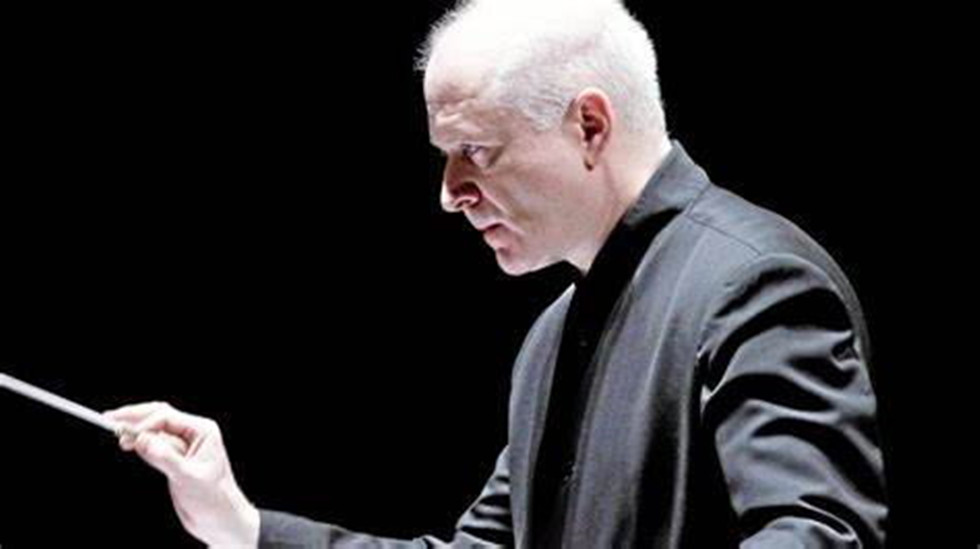 |
|
| |
乔治·本杰明(George Benjamin) |
|
|
|
| |
George
Benjamin succeeded Sir Harrison Birtwistle as Henry Purcell
Professor of Composition at King's College in January 2001 since
when he has accepted post-graduate students from across Europe
and around the world.
Born in 1960, George Benjamin started to play the piano at the
age of seven, and began composing almost immediately. In 1976 he
entered the Paris Conservatoire to work with Olivier Messiaen
(composition) and Yvonne Loriod (piano), after which he
completed his studies at King's College Cambridge under
Alexander Goehr.
Since his first orchestral piece, Ringed by the Flat Horizon,
was performed at the BBC Proms in 1980 his works have continued
to be widely performed internationally. In recent years there
have been retrospectives of his work in London at the Wigmore
Hall, South Bank, and at the Barbican as well as in New York,
Amsterdam, Turin, Frankfurt, Berlin and Hamburg.
His works are published by Faber Music and are recorded on
Nimbus Records. |
|
|
|
| |
|
|
|
|
| |
 |
|
|
|
| |
《荒山之夜》幻想曲
这首原名为“荒山上的圣约翰节之夜”的幻想曲,作者构思酝酿了很长一段时间才创作完成,后又几经修改。作者将它题献给斯塔索夫。现在音乐会上演奏的一般是经过里姆斯基一柯萨科夫修订和配器的第四稿本。
《荒山之夜》幻想曲是单乐章的标题性乐曲,有叙事和描绘的特点,结构自由,接近于音画或散漫的变奏曲。整个作品的内容可以用总谱上的一段文字说明来做解释:
“从地底下传出的神秘声响。——黑夜的精灵出现,接踵而至的还有撤旦王。——颂赞撒旦王,魔鬼做弥撒。——安息日的狂宴。——在宴饮的高潮,传来了远处乡村教堂的钟声,黑夜的精灵四散。——破晓。”
从这段说明中可以看出,这里有各种不同的角色出场,还有各种不同的场面转换,有形象,有情节,而且都表现得相当鲜明、生动。乐曲开始时小提琴的一些上下回旋的音型结合着木管乐器的滑奏式动机,提供了一个狂风劲吹、阴森可怖的背景,这就是从地底下涌出来的那种像漩涡般翻滚的声响和那些精灵的怪声怪叫,而在这粗暴的喧嚣声中,撒旦王出场了——由三个长号和一个大号齐奏奏出的这个主题,具有一种威慑的强力,它两次在不同调上呈现,更加强了它的威势和戏剧性效果。
接下的两个主题都是舞蹈性的.都象征这安息日的宴饮,前者先由双簧管和单簧管奏出,它是全曲的核心,并贯串着全曲,后者先在定音鼓乖口低音提琴拨奏的强调之下,由单簧管和大管奏出。
这两个主题和引子中的主题素材反复交替、变化和发展着,间或还结合进个别新的动机,构成了一幅狂乱、纵欲的宴饮场面。而当掀起的一阵阵高潮之后,随着一段半音阶的急剧下降,出现了D音管钟的弱奏,这远处教堂钟声渐渐地刷新了音乐的色彩。天已破晓,原先的小调转为大调,单簧管和长笛轮流奏出一个悠缓明亮的旋律,众精灵全都逃之天天,天蒙蒙亮了。 |
|
|
|
| |
Fantasia
of nights on the barren hills
Originally titled "st. John's day night on the barren hills", it
took the author a long time to complete the work, and was later
revised several times.The author dedicates it to stasov.The
fourth manuscript, revised and transcribed by rimsky-korsakov,
is now performed at concerts.
The fantasia of the night of the barren mountain is a
one-movement title piece, characterized by narrative and
description, free in structure and close to the tone painting or
loose variations.The whole content of the work can be explained
by a text on the score:
"A mysterious sound coming from below.The elves of the night
appeared, and with them came king satan.-- praise satan king,
the devil goes to mass.- feasting on the Sabbath.At the height
of the feast, the distant village church bells rang, and the
spirits of the night scattered.- the dawn."
As can be seen from this description, there are various
characters, and various transitions, images, and plots, all of
which are quite vivid and vivid.Up and down the music on the
violin at the beginning of some wiggle figure combined with a
woodwind glissando type motive, provides a strong wind blow,
ghastly, background, that is from the earth flooded out of that
kind of like a spiral rolling noise and the elves strange
animal, and in this rough, above the hubbub of the king of satan
played - by three trombone and a large unison played the theme,
with a deterrent force, it twice on the different tone, more to
strengthen its power and dramatic effect.
The next two themes are both danceable.The first is played by
the oboe and the clarinet, which is the core of the whole song
and runs through it. The second is played by the clarinet and
bassoon with the emphasis of timpani pizzicato.
These two themes and the subject matter in the introduction
alternated, varied and developed repeatedly, and occasionally
combined with individual new motives, to form a scene of
frenzied orgies.And when the waves of climax, with a sharp
decline in the chromatic scale, there is a D sound pipe bell
weak, the distant church bell gradually refreshed the music.The
day was breaking, the minor key had changed to a major, the
clarinet and the flute were playing a slow, bright melody in
turn, and the elves were all running away. |
|
|
|
| |
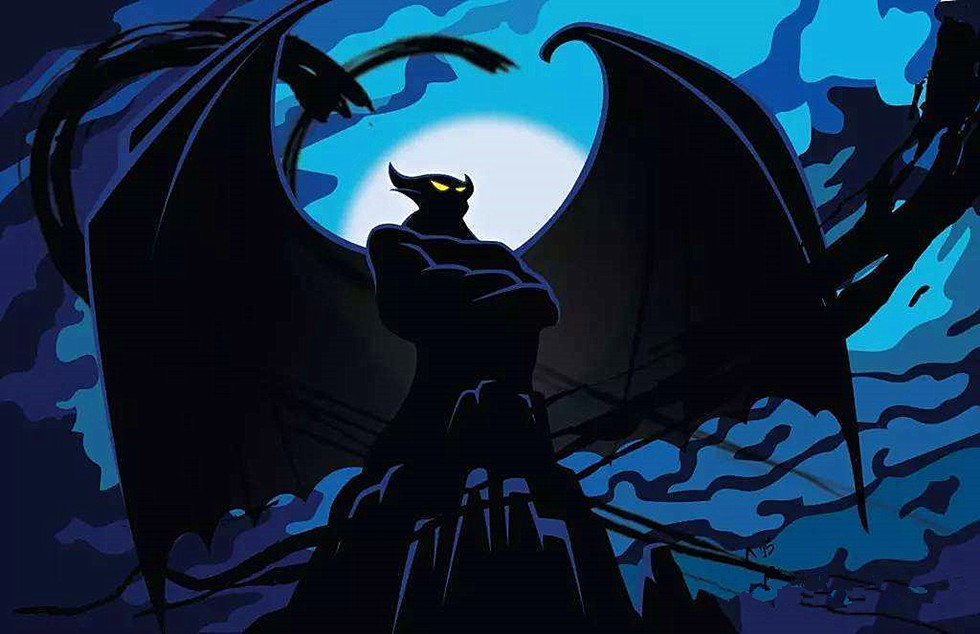 |
|
| |
|
|
|
|
| |
|
|
|
|
| |
迪士尼第三部动画片《荒山之夜幻想曲
》
-a Night On Bald Mountain -
Fantasia (1941) (Theatrica)
|
|
|
|
| |
《荒山之夜》Night on Bald Mountain
节选自迪士尼第三部动画长片《幻想曲》本片由八部音乐短片组成 为动画史贡献了一部迄今仍难以企及的经典名作
只是因过于艺术化以及二战等方面的原因 《幻想曲》并未取得预期的收益 除穆索尔斯基《荒山之夜》外
本片收录曲目还有巴赫《D小调托卡塔与赋格》 柴科夫斯基《胡桃夹子》 斯特拉文斯基《春之祭》
贝多芬《田园交响曲》 蓬基耶利《时间舞曲》杜卡《魔法师的学徒》 和舒伯特《万福玛丽亚》。 |
|
|
|
| |
The barren hills Night Night on Bald Mountain
excerpt from Disney third animated feature
"fantasia" the film consists of eight music video
for the history of animation of a still beyond the
reach of the classic masterpieces just too artistic
and the cause of world war ii, etc "fantasia" did
not achieve the expected benefits in addition to
jose sol, "Night of the barren hills outside the
film included tracks and Bach in D minor toccata and
fugue Tchaikovsky" the nutcracker "stravinsky"
spring offering "Beethoven" pastoral
symphony"Ponchiere, time dance, duca, the sorcerer's
apprentice, and schubert, hail mari. |
|
|
|
| |
|
|
|
|
| |
未得原作者编者授权严禁转载www.mt77.com任何内容 |
|
|
|
|
|
|
|
|
|
|
|
|
|
|


